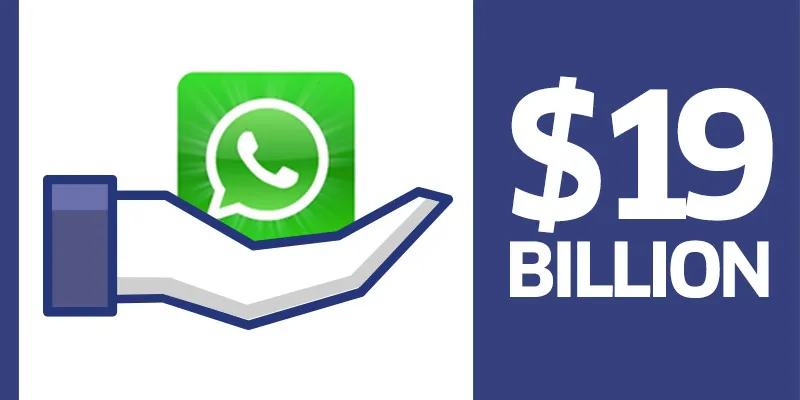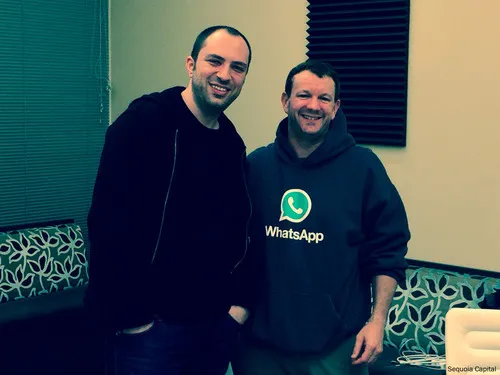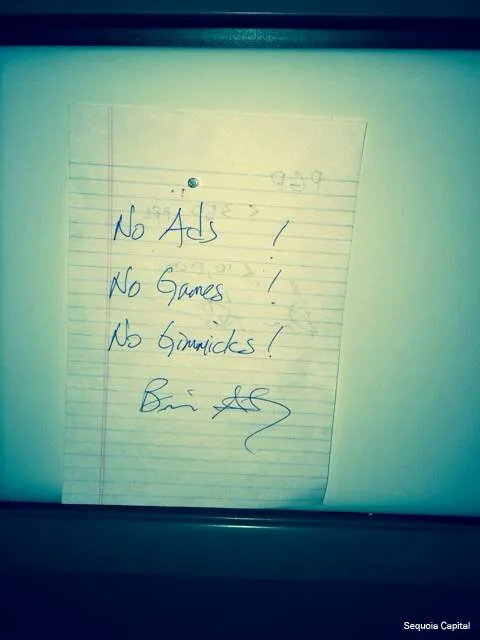Facebook – Snapchat missed, WhatsApp acquired!

Months after missing the Snapchat boat, Facebook finally managed to snap up another messaging app – WhatsApp, the granddaddy of all messaging apps. Along with an official statement in its media section, Zuckerberg has talked about the acquisition in a very uninspired post on his official blog – the salient points are:
* WhatsApp to retain its brand and operate separately within Facebook, just like Instagram
* WhatsApp co-founder and CEO Jan Koum will join the board of Facebook
* Zuckerberg speaks more about the impact that the WhatsApp team can have on Facebook’s Internet.org initiative focused on bringing connectivity to the next billion users rather than the impact on Facebook’s revenue generating operations
* The deal, which values WhatsApp at $19 billion - $12 billion in Facebook shares, $4 billion in cash and $3 billion in Restricted Stock Units (RSUs) for employee retention – is a whopper, even by Facebook standards.
So why did Facebook buy WhatsApp?
- It has 450 million monthly active users (MAU)
- 72% of the MAUs are daily active users (DAU) – industry standard is about 20%
- ~1 million users join WhatsApp daily
- ~50 billion messages sent every day

WhatsApp’s history
- WhatsApp was co-founded by Jan Koum and Brian Acton in 2009.
- Jan dropped out of San Jose State University where he was studying math and computer science, while Brian is a BS (Computer Science) from Stanford University and worked in Apple, Adobe and Yahoo!
- WhatsApp has focused on remaining lean right from inception. Just 55 employees, of which only 32 are engineers; that means each engineer supports about 14 million active users, and that too at an up time of 99.9%!
- WhatsApp claims to have never hired or used a marketer or a PR person in its existence.
- They have raised just one round of funding of $8 million from Sequoia Capital in 2011 – do the math on the ROI!
Why are they worth that much?

WhatsApp uses a very unique business model. Most apps focus on gaining a huge user base by being free, and then making revenue by ploughing ads on the network. But CEO Jan has a note by co-founder Brian taped to his desk to remind them of their commitment to user experience rather than gimmicky ads based business model. So WhatsApp operates on the model that it is free for the first year and then charged at 99 cents per year.At $19 billion, Facebook is valuing each user of WhatsApp at $42. So is it all about connecting the next billion people as stated or is there more in its future? Let’s face it – Facebook’s mobile messaging apps were just about cutting it. So this acquisition definitely adds some expertise and mobile technologies into the company.
Jan has stated that even within Facebook, they will continue with the subscription model rather than go into ad based revenues like Instagram did. So that means this can become a cash cow generating steady annual revenues. Of course, the team’s contribution to Internet.org will definitely get millions more connected, and with Facebook’s marketing muscle, can become the de facto alternative to SMS in the near future. Lastly, Facebook gets access to very rich data on mobile users that they currently might not have.
May be it is time to revisit why Snapchat declined the Facebook offer!







